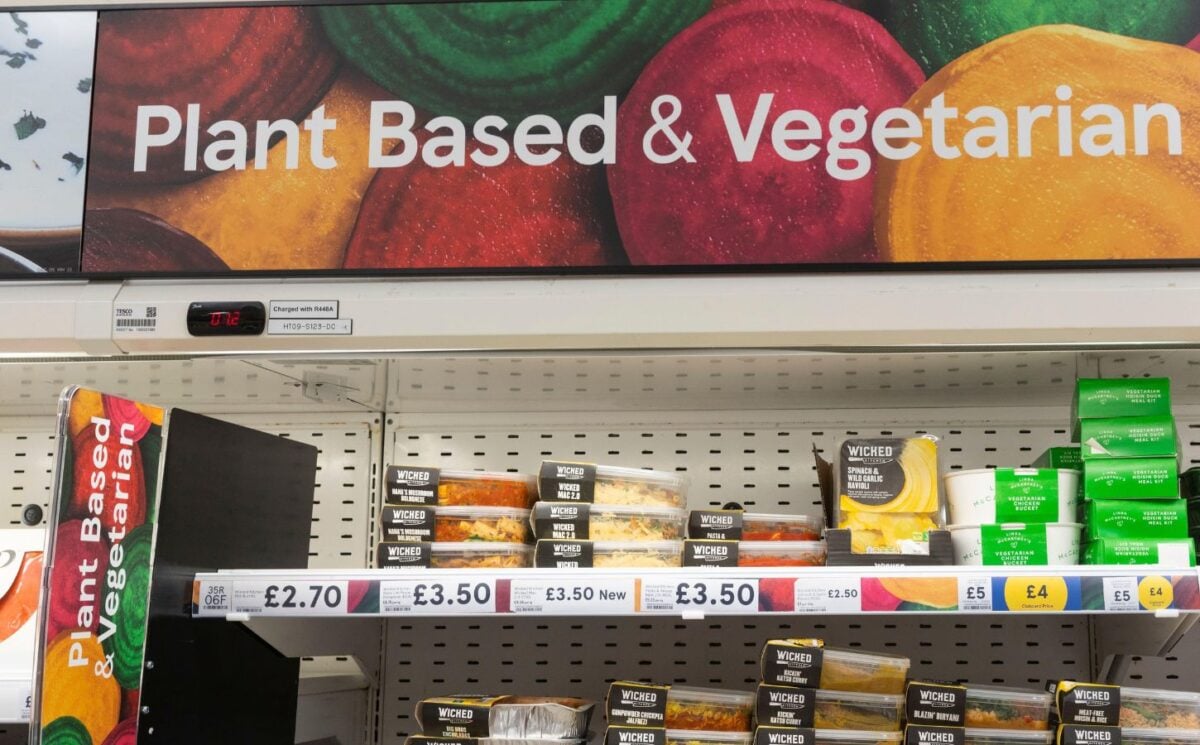Plant-based ultra-processed foods (UPF) are bad for your heart, according to a new study. So naturally some sections of the media have interpreted this to mean that giving up meat will kill you.
Read more: Is Vegan Food Really Worse For You Than Meat? A Factcheck Of Media Coverage
This condemnation of veganism occurs whenever research comes out that shows that not all vegan diets are equally healthy. It’s not something that vegans tend to worry about, since their primary guide for what to eat is whether or not it contains anything that came from an animal (more on what veganism means here). Those who are health-conscious too can simply opt for a wholefoods plant-based diet.
So does the new study justify the reaction from some media outlets that seem to love an opportunity to attack veganism? Let’s dig into its findings.
Key results
The study, published in the Lancet, was conducted by researchers at Imperial College London and the University of São Paulo (USP). They drew health data from the UK’s Biobank for 118,000 British people aged 40 to 69. The study doesn’t say how many participants were vegan. Rather it grouped them into quartiles depending on how much of their diet was made up of plant-sourced non-UPF.
The study categorized the foods that Biobank participants reported eating into plant-sourced non-UPF, plant-sourced UPF, animal-sourced non-UPF, and animal-sourced UPF.
The researchers found that eating more non-UPF plant-based food – i.e. whole foods like legumes and vegetables – lowered the risk of cardiovascular disease. For every 10 percent increase in plant-sourced non-UPF, the risk went down by seven percent. The risk of death from cardiovascular disease also went down by 13 percent.
But the risk increased with higher consumption of plant-sourced UPF – five percent for the risk of cardiovascular disease and 12 percent for death. Overall, both animal-sourced and plant-sourced UPF were linked to higher risk and mortality from cardiovascular disease.
In addition, the researchers found that eating plant-sourced non-UPF instead of foods from the other three categories had protective benefits for heart health.
What are plant-sourced UPF?

The plant-sourced UPF category contained foods “exclusively or primarily of plant origin.” This includes sliced bread and burger buns, fizzy drinks, salty snacks, cakes, tomato ketchup, vodka, breakfast cereals, and chocolate biscuits.
Read more: Is Oat Milk Bad For You? The Truth Behind The Claims
These foods were not necessarily vegan, and are consumed by both vegans and meat-eaters. “Our aim wasn’t to evaluate if the food was vegan or vegetarian,” lead author Fernanda Rauber, a researcher at the Centre for Epidemiological Research in Nutrition and Health at USP, told Plant Based News. “Our database allowed us to differentiate between animal and plant-based options for many foods, such as ice cream, rice pudding, canned soup with meat cheese and white sauce (animal-sourced) vs. candies, canned soup without meat, tomato ketchup and pesto (plant-sourced).” This explains why this category accounts for the majority (39.4 percent on average) of the energy intake in the participants’ diets. Other research has found that UPF make up half the average British diet.
Meat alternatives were only one of 14 types of plant-sourced UPF considered. Meanwhile, the animal-sourced UPF category was much smaller. It only included processed red meat like sausages, processed white meat like chicken nuggets, mayonnaise, and dairy desserts like ice-cream.
Misleading media coverage
Based on the widespread consumption of the foods in the plant-sourced UPF category, it’s not just plant-based eaters who are risking their heart health. The authors’ key message was that just because a food is plant-based or mostly plant-based, doesn’t make it healthy. This finding won’t come as a surprise to many people, and it’s likely not a source of concern for ethical vegans. Yet some of the media coverage has claimed that the shows veganism is unhealthy.
In particular, some outlets have used the study to claim that meat alternatives are bad for your heart. But the study doesn’t distinguish the risks associated with specific plant-sourced UPF. In addition, meat alternatives only accounted for 0.2 percent of the calories consumed by participants, according to Rauber. “[W]e cannot draw specific conclusions related to this particular type of food,” she said.
Read more: The Vegan Cheese ‘Health Warning’ – Is There Really Cause For Concern?
Meanwhile, a recent major study investigated the link between multimorbidity – the co-occurrence of two or more long-term conditions, such as cancer and heart disease – and various ultra processed foods. It found that the risk of multimorbidity was “most notable for animal-based products and artificially and sugar-sweetened beverages.” But it found no increased risk associated with other UPF such as breads, cereals, and plant-based alternatives.
What are the risks of animal-sourced UPF?
The Lancet study didn’t draw specific conclusions about the risks of animal-sourced UPF. But the story looks similar to how it is for plant-sourced foods. Rauber said the findings indicated that non-red meat non-UPF (e.g. eggs, dairy, chicken meat) was linked to a lower risk of and death from cardiovascular disease. But non-red meat UPF increased the risks. Meanwhile, Rauber noted that “Interestingly, the consumption of all non-red meat in the diet did not exhibit significant associations with cardiovascular disease outcomes.”
In the study, the researchers write that their findings “are in line with previous meta-analyses, which consistently demonstrate a significant positive association between the consumption of processed meat and various [cardiovascular disease] and mortality outcomes.”
As for red meat, one large-scale study showed that eating a moderate amount of red meat raised the risk of cardiovascular disease by eight percent. This closely matched the results of a study from the University of Oxford. That study found that for each additional 50g of unprocessed red meat consumed a day, the risk of coronary heart disease went up by nine percent. For every 50g of processed meat consumed a day, the risk increases to 18 percent.
UPF marketed as healthy
Many manufacturers of UPF have co-opted the association between plant-based diets and health to sell their products. Foods such as breakfast cereals and energy bars might market themselves as plant-based. But often such products are high in sugar. Processed plant-based foods like burgers also have a “health halo.” This mean consumers assume they’re healthier without knowing all the nutritional information.
But health experts have warned that being processed doesn’t necessarily mean something is unhealthy. The Lancet study used a food classification system called NOVA. Critics say NOVA underestimates the importance of ingredients in determining how healthy a food is, rather than it’s processing.
Under the “meat alternatives” in the plant-sourced UPF category, the Lancet study included not only veggie sausages and burgers, but tofu and tempeh. Both of these are considered healthy sources of protein and many other nutrients.
According to Rauber, tofu and tempeh were classified as UPF because “we observed many options of tofu and tempeh with natural flavourings and thickeners like guar gum available on the market at the time of data collection.” This isn’t true of all these products. Tofu company Tofoo, for example, doesn’t use such additives. Rauber added that since meat alternatives made up such a small amount of calorie intake, it’s unlikely the study results would have changed if tofu and tempeh had been classified differently.
Ultimately, the evidence does not point specifically to vegan food being bad for your heart. But if you’re health conscious, it’s important to heed to messages of numerous studies that plant-based diets are healthiest when they mostly contain wholefoods.






